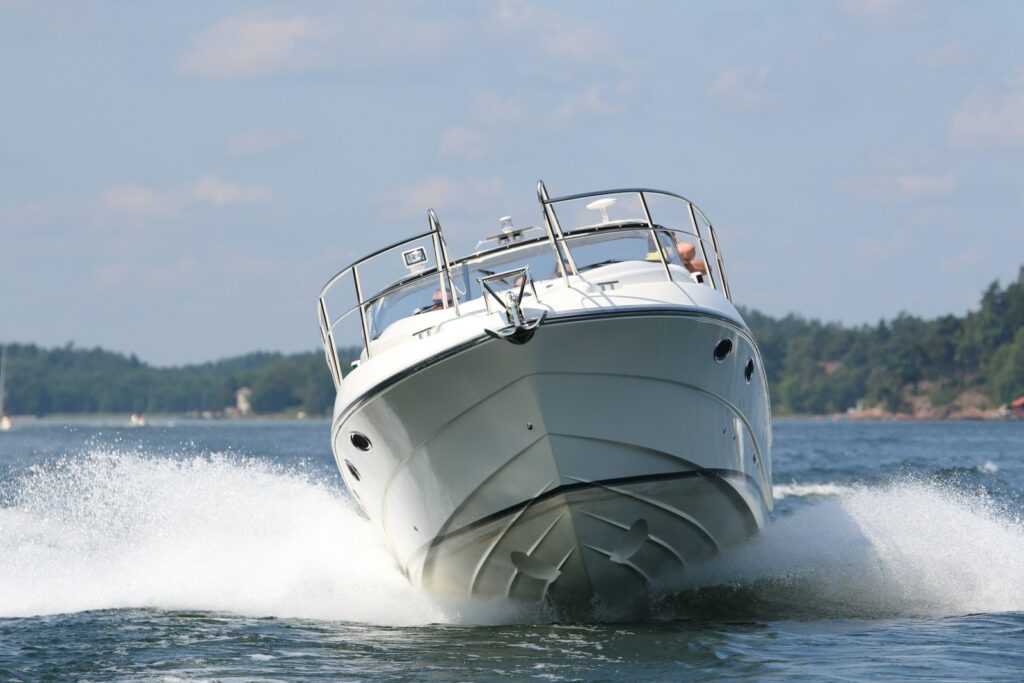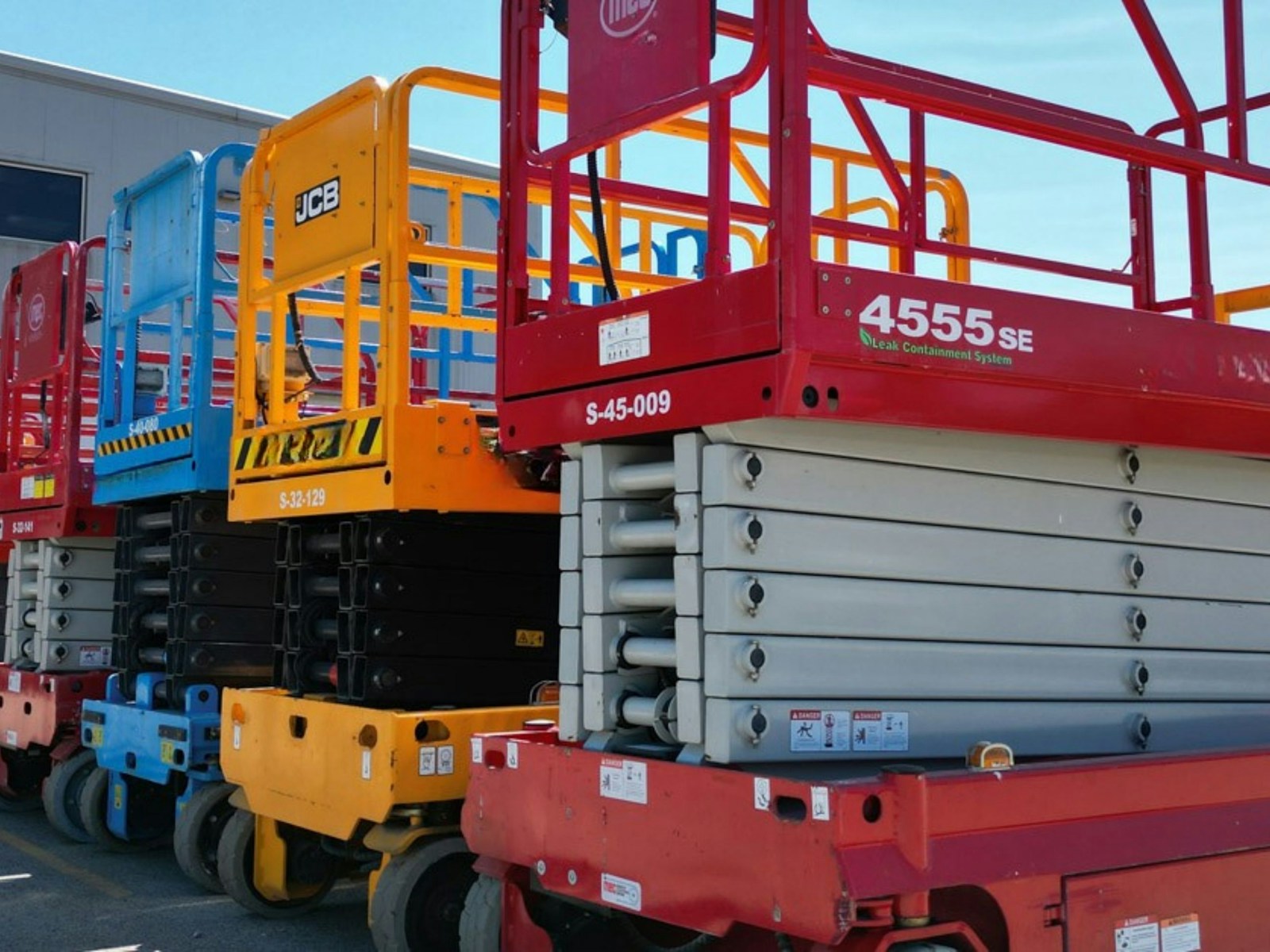Are you stressing about an upcoming boat transport from state to state? Keep reading to learn the top 7 mistakes you could make when it comes to transporting boats.
Why Proper Boat Transport Matters
Transporting a boat across state lines is more complex than just hitching it to a truck and hitting the road. It involves a detailed process where safety, legal compliance, and specialized experience are paramount. Moving a high-value asset like a boat requires careful planning to prevent damage, avoid legal penalties, and ensure it arrives safely at its destination.
This isn’t just about getting from point A to point B. It’s about protecting your investment with a seamless, professional experience. Choosing the right boat transport company is the single most important decision you can make. The company must be properly licensed to operate legally and safely, ensuring compliance with all regulations. An experienced hauler navigates the complexities of oversized loads, state-specific regulations, and logistical challenges, giving you complete peace of mind.
At Interstate Haulers, we’ve transported boats of every size and style since 1997 — safely, efficiently, and on schedule. You can count on our reliable service for every shipment.

Photo by Ivan Ragozin on Unsplash
Mistake #1: Failing to Choose a Specialized Boat Transport Company
A common error is assuming any freight company can handle boat transport. The reality is that hauling a boat, especially an oversized one, is a unique skill. General freight carriers often lack the specific equipment, knowledge, and permits required for safe and legal boat shipping. They might not understand the nuances of yacht transport or the delicate handling required for different hull types.
A specialized boat hauler brings critical expertise to the table. They are experienced with the permits needed for each state, know when pilot cars are required, and understand how to properly load and secure vessels on custom trailers or flat racks. They have the right trucks, cradles, and strapping to prevent stress fractures or cosmetic damage during transit. Equally important, experienced, licensed drivers are essential for safely maneuvering and transporting boats, ensuring compliance and protection for your valuable cargo. Hiring a specialist means you’re getting a team that lives and breathes boat transport.
Mistake #2: Ignoring Boat Size and Weight Requirements
A boat’s size is a critical factor in planning a successful transport, as it directly impacts every aspect of the logistics. Your boat’s length, height, and beam width directly determine the type of truck and trailer needed. Transport companies must be able to accommodate different boat sizes and specifications to ensure safe and efficient shipping. A vessel that exceeds standard legal dimensions is classified as an “oversize” or “over-dimensional” load, which triggers a host of special requirements. Several factors, such as the boat’s size, weight, and route, influence the transport plan and costs.
For example, a boat with a beam wider than 8’6” is considered a wide load and will require permits in every state it passes through. Oversized boats and oversize boats require special permits and additional logistics, such as escort vehicles and route planning. As the width increases, so do the regulations, often mandating escort vehicles (pilot cars) to ensure safety on the road. Special permits are necessary for certain boats to ensure legal compliance, especially when crossing state lines. The boat’s height is also critical for route planning to avoid low bridges and overpasses. A 35-foot sailboat or yacht often requires a custom cradle and height clearance planning to navigate the journey without incident.
The right equipment, such as boat trailers, is essential for supporting and securing boats of various sizes during transport. There are common types of trailers and transport methods used for different boats, and choosing the appropriate one helps protect the boat’s hull and ensures safe delivery. The haul process is a key step in boat transport, involving secure loading, transit, and unloading.
Planning a successful boat transport involves several important steps, including selecting the right equipment, obtaining necessary permits, and coordinating logistics for a safe and cost-effective move.
Measuring Your Boat: The First Step to a Smooth Transport
Before you can get your boat on the road, the most important step is to measure your vessel accurately. Precise measurements are the foundation of a successful boat transportation experience and are essential for receiving an accurate boat shipping quote from your chosen boat transport company.
Start by measuring the overall length of your boat—from the tip of the bow to the end of the stern. Be sure to include any extensions such as bow pulpits, swim platforms, or motor brackets, as these can affect the total length and the type of equipment needed for transport. Next, measure the height of your vessel from the bottom of the keel to the highest non-removable part, such as a radar arch or hardtop. Finally, determine the beam by measuring the widest point of your boat, including the rub rail.
Providing these exact dimensions to your transport company allows them to select the right equipment and method for shipping your boat, whether it’s a powerboat, sailboat, or luxury yacht. Accurate measurements help ensure your vessel is transported safely, avoids unexpected delays, and fits within the legal requirements for overland transportation. They also play a key role in determining the cost of transportation, as larger boats or those with unique features may require custom cradles, special trailers, or additional handling.
At Interstate Haulers, we use your boat’s measurements to plan every detail of the journey, from selecting the right trailer to mapping the safest route. This attention to detail means your boat is shipped efficiently and arrives at its destination in the same condition it left. For a worry-free experience and a precise boat shipping quote, always start with accurate measurements—your vessel’s safety depends on it.
Mistake #3: Not Preparing the Boat Properly for Transport
How you prepare your boat is just as important as who transports it. Improper preparation is a leading cause of damage and delays. Before your hauler arrives, your vessel needs to be prepped to withstand the rigors of highway travel, including vibrations, wind, and weather. Handling heavy equipment and large boats requires extra care during preparation to ensure safe and secure transport. Every vessel is different, but some steps apply to almost all boats.
Key preparation steps include:
- Secure All Loose Items: Anything not bolted down inside or outside the boat should be removed or securely stowed. This includes anchors, antennas, electronics, and personal belongings.
- Drain Fuel and Water Tanks: Most transporters require fuel and water tanks to be nearly empty to reduce weight and prevent fire hazards.
- Remove Accessories: Canvas covers, Bimini tops, and other accessories should be taken down, as they are not designed for highway speeds.
- Consider Shrink Wrapping: For long-distance moves, shrink wrapping can protect your boat from road grime and weather.
While there are standard dimensions and procedures, your boat is unique. A good hauler will provide a checklist to ensure nothing is missed.
Mistake #4: Overlooking Permit and Route Regulations
Navigating the maze of state-by-state regulations is one of the biggest challenges of interstate boat transport. Each state has its own rules for oversized loads, including specific travel times, approved routes, and permit requirements. A single cross-country shipment could require a dozen different permits.
Failing to secure the right paperwork can lead to hefty fines, impoundment of your boat, and significant delays. Professional haulers handle this entire process for you. They plan routes that avoid construction, low clearances, and restricted roads. For larger shipments, they coordinate with state authorities and arrange for certified pilot cars or escort vehicles to accompany the transport. With deep experience in all 48 continental states, Interstate Haulers navigates these regulations daily, ensuring your boat’s journey is fully compliant. Our services cover the entire continental United States and can deliver your boat or equipment to any location as required.
Mistake #5: Choosing Price Over Reliability
When gathering quotes, it can be tempting to choose the lowest price. However, an unusually low quote can be a red flag. It may not be an accurate quote and could hide costs related to inexperienced operators, insufficient insurance, or improper equipment. Prices can vary significantly based on factors like boat size, route, and season, so it’s important to work with a company that offers transparent pricing and helps you understand all potential costs. The initial savings can quickly disappear if your boat is damaged, your delivery is delayed for weeks, or you discover your hauler is not properly licensed.
A reputable company provides an accurate quote that reflects the true cost of a safe and legal transport. This includes permit fees, pilot car services if needed, proper insurance, and the use of professional-grade equipment. Investing in a trusted transport company with a proven safety record protects your boat and, ultimately, your wallet from the costly consequences of a botched job. Professional companies also tailor their services to meet the specific needs of each business, ensuring efficient and cost-effective solutions.
Mistake #6: Forgetting About Pickup and Delivery Details
The journey doesn’t just happen on the highway. The logistics at pickup and drop-off are just as critical. Many owners overlook key details like marina access for a large truck, the availability of a crane or travel lift, and coordinating schedules between the driver and the marina staff.
Professional boat haulers manage these logistics. They communicate with both the pickup and destination points to confirm arrangements, ensuring that the right equipment is ready for loading and unloading. A good driver will keep you updated on their ETA and coordinate directly with the marina to ensure a smooth hand-off. A simple tip can save a lot of headaches: Confirm marina hours and ensure your boat fits the destination’s lift equipment before scheduling your transport.
Mistake #7: Not Understanding Insurance and Liability
Handing your boat over to a transporter without verifying their insurance is a major risk. A professional hauler must be registered with the Federal Motor Carrier Safety Administration (FMCSA) and carry sufficient cargo insurance to cover the value of your vessel. Don’t be afraid to ask for proof of insurance.
At Interstate Haulers, we carry comprehensive cargo insurance that protects your vessel and our equipment throughout every leg of the transport. We believe in total transparency and provide all necessary documentation to give you confidence that your investment is protected from start to finish. This commitment to professionalism ensures your boat is in safe hands.
We handle every detail — from route permits to insurance — so your shipment arrives on time and intact.

Photo by Robert Gunnarsson on Unsplash
Bonus: What About International or Boat Overseas Shipping?
While Interstate Haulers specializes in transport across the continental U.S., we often play a key role in the first leg of an international journey. Customers preparing for boat overseas shipping frequently use our services to transport their vessel to a port. We also assist with international boat shipping and international transport, including customs clearance and logistics for shipping boats worldwide. We can deliver your boat safely to the terminal for loading onto a flat rack or for a roll-off service.
Partnering with a domestic expert for this crucial step ensures your boat arrives at the port on schedule and without damage, ready for its ocean voyage. We coordinate with freight forwarders and shipping terminals to make the hand-off seamless. Shipping boats across the sea presents unique challenges, especially when handling yachts, sailboats, and power boats—requiring a specialized fleet and experienced team. We have extensive experience shipping boats from the west coast and other major ports, ensuring smooth logistics no matter the origin. Our fleet is equipped to handle a variety of vessels, including large yachts and delicate sailboats, with the right equipment for safe sea transport. When your boat arrived at its destination, it is thoroughly inspected to ensure it is in perfect condition.
Contact us for a free quote or request your free quote today for international boat shipping and overseas transport services.
Transport Your Boat with Confidence
Shipping a boat across the country doesn’t have to be stressful. By avoiding these common mistakes and partnering with a trusted expert, you can ensure your vessel arrives safely and on time. Interstate Haulers makes boat shipping a worry-free experience from start to finish.
As a family-owned company since 1997, we’ve built our reputation on reliability, specialized expertise, and personalized service. With nationwide coverage and a commitment to customer satisfaction, we treat every boat like it’s our own.




